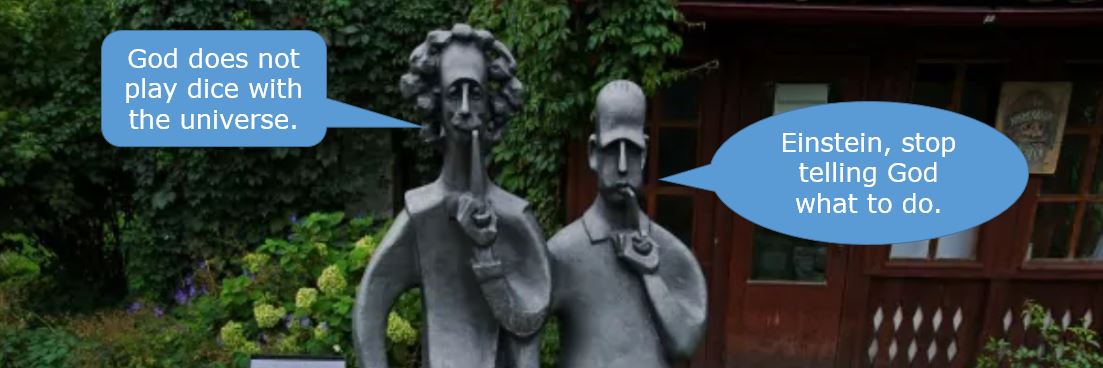
The 20th Century was the Century of Physics. In 1905, Einstein published his “Special Theory of Relativity”, and up to about World War 2, modern physics was established. Very little of modern physics corresponds with what we experience in daily life, but it’s been experimentally verified and is used in current technology.
Physicists like Albert Einstein, Niels Bohr, Werner Heisenberg, Max Planck, and others debated the new theories, and tried to make some sense of the universe.
Niels Bohr and Werner Heisenberg came up with a set of principles called the “Copenhagen Interpretation”. Advanced mathematics was coming up with a bunch of theories to explain experimental results, but the theories were getting out of control. The Copenhagen Interpretation was an effort to institute some guidelines.
One principle was that if a theory couldn’t be tested or a phenomena measured, it didn’t matter.
Physicists seem to have given up on that. Twenty years ago, String Theory predicted the existence of several more dimensions, however, those dimensions were too small to ever be measured. Dark matter is another theory. Dark matter doesn’t mean a type of matter, but is a term to stand for several observations that physicists can’t explain.
The current problem is that physicists generate advanced mathematical models that can’t be proven or so far, haven’t predicted any experimental results. Those physicists generate publicity and funding, but yield no results. This has been going on for decades. This pulls resources away from other avenues of physics research.
A Youtube physicist, Sabine Hossenfelder explains part of the issue. Many other physicists have been saying the same thing. The physicists employed in those fields are trying to retain their seats on the gravy train.
My interpretation is that the first half of the 20th Century resulted in Quantum Physics, and since them, no foundational developments have been made in physics. Since then, many splendid modern technology have come from those developments.
The 21th Century is the Century of Biology. Technological advances have allowed biologists to make great gains. The physicists haven’t or don’t want to, adapt to that new reality.
Perhaps if physicists migrate to more promising research topics, productive work can be done. It’s possible that we need biologists to come up with better brains or engineers have to come up with more sophisticated tools, before physicists can figure out a way to get gravity to be compatible with quantum physics.